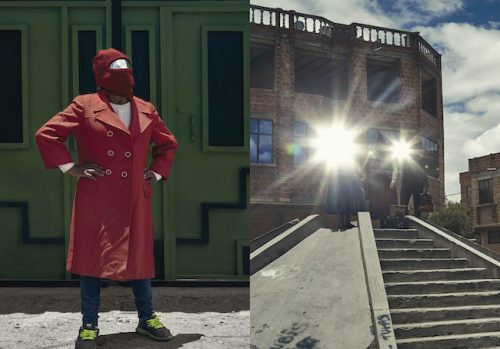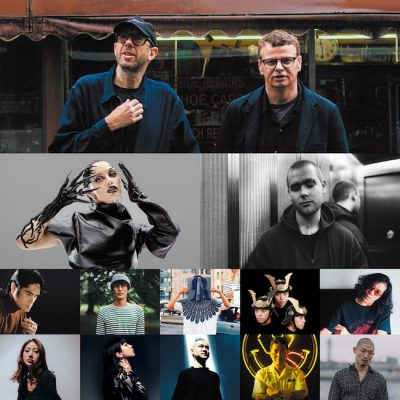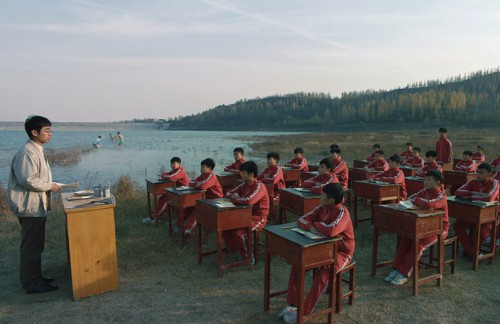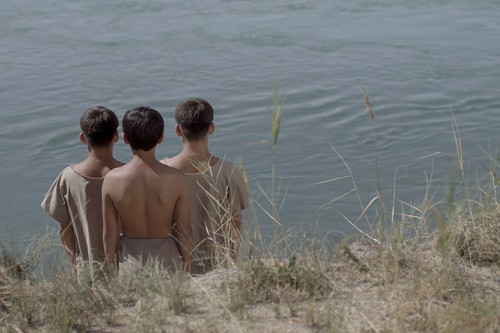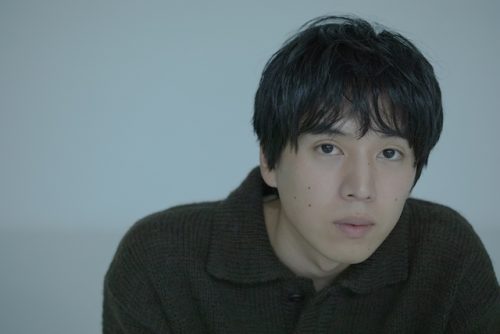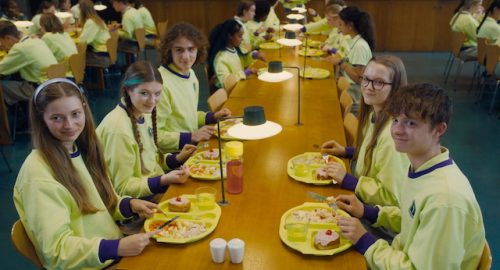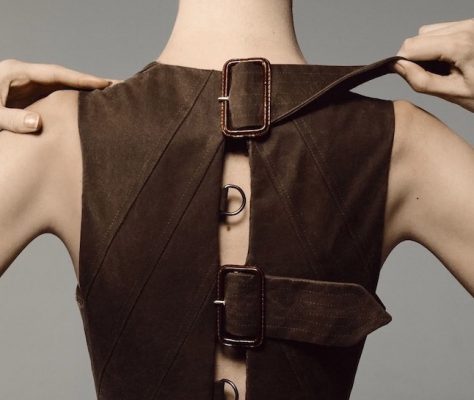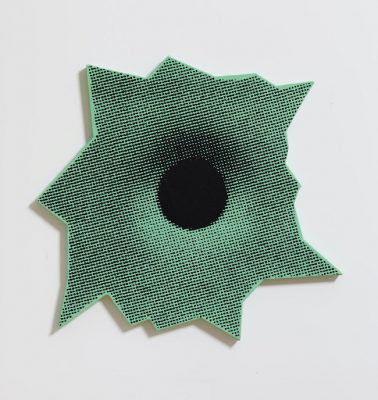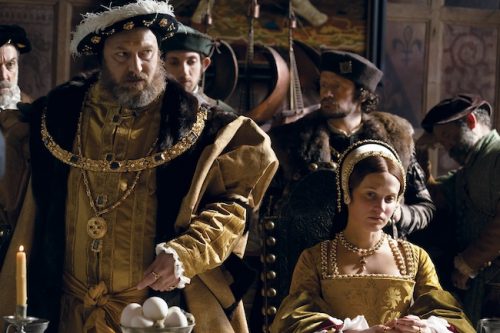鉄道運転士はある日、列車に引っかかった青いブラを見つける。その持ち主の顔は見たことがないけれど、窓からその美しい胸を垣間見たことがある。彼女こそが理想の恋人に違いないと、彼はその持ち主を探す旅に出るーーまるでシンデレラのようなおとぎ話然としていて同時にリアルな側面をもつこの物語を生み出したのは、長編デビュー作品『ツバル』以降、奇才として注目されるファイト・ヘルマー監督だ。全編セリフなし、美しい色彩とノスタルジックなフィルムの空気感、人々の人生と寓話性とを見事に融合させた監督、そして『ツバル』でも出演を果たし、今作でも鉄道運転士の弟子とも言える役所を演じたフランスが誇る名優、ドニ・ラヴァンに話を聞いた。
–なぜ“ブラ”という題材を選んだのですか?
ファイト・ヘルマー「女性にとってブラは普段身につけるものだけど、男性にとっては妄想を呼び起こすものだからです。見た瞬間、誰かと付き合っている状況でしか見ることのできない美しい胸とかを想像するでしょう?(笑)」
–そうですね。そしてブラの形はアートです。監督の作品は常に物語やファンタジーを取り込んでいるように思えます。あなたにとっての“物語”とは何ですか?
ファイト・ヘルマー「確かにこれは“シンデレラ”を思い起こさせる話だけど、僕は事実に基づいた映画を作るのが好きなんですよ。この映画のストーリーもたくさんの事実に基づいています。場所としてもインスパイアされた街があったんです。アゼルバイジャンの首都バクーにあるシャンハイという街があって、中国と似ていたからシャンハイという名前になっているんですね。そこのみんなは中国に行ったこともないし、僕は結構上海とは違っていると思ったけどまあそういう名前で。その街を電車が通っていて、映画の中のように洗濯物をたくさん持って行ってしまうかどうかはわからないけど、実際に狭い道を電車が通るそんな街があるんです。また、電車の運転手についていえば、性格的に電車の運転手はあの主人公のように孤独を好む人が多いと思います。運転手は一人で過ごす時間が多いだろうから、たくさんの人に囲まれたいなら運転手にはならないでしょう。この男性は退職後、これまで結婚せずに家族を見つけることを忘れてきてしまったことに気づきます。退職して、孤独と対面して家族を探し出す。だからブラはある意味で、彼が家族を探していることを象徴しています。僕の中でこれらの事実がインスピーションになって、次に想像力が働いてあの物語ができました。でも僕は典型的な姫の物語などには興味がなく、どこかで本当に起こりそうな話が好きなんです。この主人公の彼の話に戻りますが、彼は退職し、恋を探していたんですよ。ありそうな話でしょう?」
–Why did you choose the bra?
Helmer: “Well because the object of the bra is a normal piece of clothing for women. But for the men, it is something that evokes a lot of imagination. You immediately start to think about beautiful breasts and something you usually only see when you are in a relationship with someone.”
–Yeah, the shape of a bra is like an art. You always make a tale, or fantasy. What is the tale to you?
Helmer: “I like to base my films on facts. I think this film has a lot of real facts as the base of the story. There was, or there is a neighborhood that inspired me. It exists, this is not a studio set. It was not built. There was a neighborhood called Shanghai in the capital of Baku in Azerbaijan, Shanghai because the people thought it looks like China here, which I think is wrong. And they have never been to China. But so, trains pass the neighborhood. I don’t know if the trains take a lot of linen because usually people will take the linen more smart than the stupid characters in the movie. I think by character, train drivers are lonesome people. I don’t think you won’t become a train driver if you want a lot of company in your life. I think if you’re a train driver, you spend most of your life alone. And this man, now going into retirement, he understands that he forgot to find a family. So once he finished work, he is consulted with this solitude and he is looking for a family. So the bra, in a way is the symbol for him trying to find this woman.
At some moment, my facts end and my imagination starts. But I’m not interested in fairytales that someone can make like a golden princess coming…etc. I like to stay in the boundaries of natural laws. I think the story can technically happen. So we were talking about this old character right, who is also retiring and he was looking for his love.”
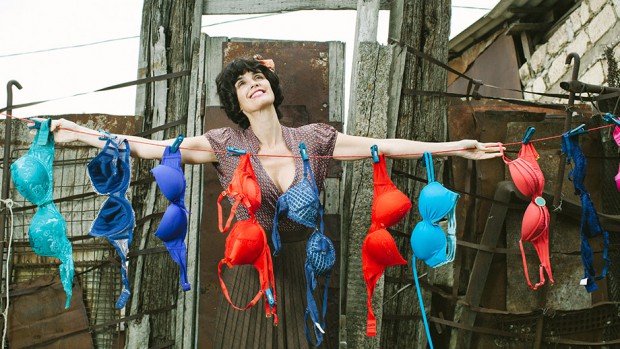
–登場人物全員のキャラクターが際立っていますが、どういう風にドニとキャラクターを作り上げていったのですか?
ファイト・ヘルマー「ドニとはキャラクターを作るも何もない(笑)。(ドニに向かって)君とキャラクターをどう作るかだって。彼にはシチュエーションを与えると大体どんなことをするか想像つくんだけど、同時に僕が言った通りにやることは少ないから、常に驚かされています。撮影後、彼のキャラクターは最初に描いた通りにはならなかったんです。機械がある家は、元々はそんな家が存在することは知らなくて何かの間違えで見つかって。その場で彼の家の設定にする事を決め、機械を使って音楽を作る彼について話を作ったんです。彼のキャラクターの美しいところは、本当の電車でしか完璧な音楽構成が作れないところ。 完璧な音楽を作るには走っている電車が必要。だから彼は最後すごく幸せなんです。彼が描いていたような音と曲ができて」
–彼は音楽だけでなく、踊ったり、蹴ったりといつも音を立てていますが、それはなぜですか?
ドニ・ラヴァン「モダンミュージシャンだから。監督とは役の打ち合わせはしなくて、自然とお互いのヴィジョンが合うんだ。彼はミュージシャンでもあり、アーティストでもあるから少しクレイジー。機械で音楽を作っていく間、監督は動きを指名し、僕はセンスと感情を込めるんだ。監督のアイデアと僕が貢献するものが混ざっているのさ」
–映画の話が出た時、どんな人物にしたいかという明確なヴィジョンはありましたか?
ファイト・ヘルマー「いや。彼に役を頼んだ頃にはもう撮影が始まっていました。どうしても彼にトビリシに来てもらいたかったんです。このキャラクター自体はそんなに考えていなかったけど、イメージはできていて。20年前にやった映画に登場するキャラクターを想像していたんです。全く同じでなくても、似たような雰囲気のキャラクターを。そこが出発点だった。やはり何年経っても覚えていたんですね。そしてミュージシャンのようなキャラクターを磨いていきました」
–All the characters stand out. Would you please tell me what kind of conversations, how did you build up the character with Denis?
Helmer: “I mean you cannot build a character with Denis. How do you built a character with you? I’m offering him a situation and I have a certain perception of what he’s gonna do. But I know also that he’s somebody that always surprises me because he’s actually never doing what I’m asking to. I’m always surprised. I have imagination. And then it leads to different situations. I guess his character was not at all written as it happened finally in the shooting place. It was actually his house with all the machines. We did not know that this exists and he found that by accident. So on the spot we decided that this will be his house and we created a story about him trying to make music with the machines. And later, let’s say the art of his character is that the perfect composition only can be done with the real train. So the standing machines did not lead to the perfect composition. He needs the running train to make the perfect piece of music. So that’s why he’s so happy at the end of the film. Because now it sounds the way he always imagined, and how the song should sound.”
–I wonder why he always makes a noise, like dancing, kicking, playing instruments?
Lavant: “Because he’s a modern musician. You don’t talk the character through with the director. It very often results in the same case. He’s a musician and an artist at the same time, and is a little crazy. By playing the music with the machines, the director indicates the movements and he invests his sensibility and his emotions. It’s a combination of the director’s idea and what he contributes.”
–When he did your script, when you discussed about this film, did you immediately have a clear vision about the character?
Helmer: “No. When I offered him to work, the film had already started shooting. I needed him very urgently to come to Tiblisi. I didn’t think about this specific character but I had some kind of image. I had a character in mind who I played for my first film 20 years ago. Even if it’s not the same character, there was a similar dynamic. That was the starting point. I remembered and I knew from the years. And then we sculpted it, a character with the traits of a musician.”
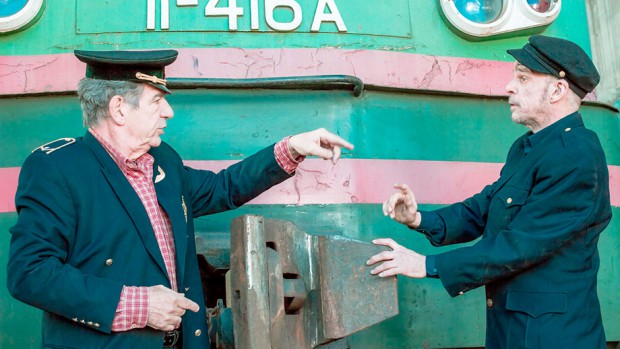
–『ツバル』の時もキャラクター発展は似たような過程でしたか?共にお仕事されるのは二回目でしたが、二人の関係で何か変化はありましたか?
ファイト・ヘルマー「20年前、僕はまだ無名でした。ドニが僕の映画に出てくれることが決まってすごく光栄でしたよ。僕みたいな監督の初監督作品には届かない存在だったのでね。彼は2ヶ月もブルカリアに行くことを決意してくれたんです。3ヶ月もだったかもしれない。ブルガリアに行って生まれたばかりの(映画の中の)子供達と住みに、パリにいた家族まで置いて行ってくれたわけです。奥さんと子供達も連れて来たらと言ったのに、撮影中は演技や作品に集中したい人だから邪魔されたくなかったのでしょうね。ほぼ撮影現場のプールに住み着いていて、芝居中じゃない時はそこでアコーディオンを弾いていた。気が散るから撮影中はやめてと注意した時もあったくらい(笑)。当時はフランス語を話せなかったから今回やっと彼と対話をしながら撮影ができて嬉しかったです。少ない時間の中ジョージアに来てもらって、たくさんの撮影をしました。まだどんな役柄かも明確に決まっていなかったから既知の仲だったことはとても助かりました。キャラクターを見つけて作り上げていくのに、彼にはとても助けられたんですよ。この役は主人公の友人、主人公の弟子とも言えるけど彼はいつも自分の脇筋を持っています。それは映画において、本筋から一旦離れて、観客にこの話以外にも何かが存在するんだと伝えるとても大切なことなんです。脇筋と本筋が変化し発展していくには、二つの間で大事な繋がりを見つけなくてはならない。両者が発展し続けなくてはならないんです」
–最近の映画製作において一番大切だと感じることは? この時代にユニバーサル・アートを作ることの意味をどう考えていますか。
ファイト・ヘルマー「“最近”という言葉はあまり好きじゃなくて。なぜなら 100年前映画製作において大切にされていたことは今でも存在し、尊敬されているから。物語やアートの本質は100年経っても変わらないと思います。そして僕の映画は単なる物語ではない。映画における物語は前書きに過ぎず、何か変わったことを伝えるために物語を利用しているのです。状況を説明するために雰囲気を作ってくっつけているというか。アーティストにとって大事なのは、視聴者とコミュニケーションを取る過程です。コミュニケーションをとらなくてはいけないと思うし、自分のために映画を作ることには興味がないんですよ。視聴者がどう反応するかにとても興味があります。彼らを喜ばせたいわけでもなくて、見たことのない、味わったことのない経験を与えたいのです。だから自分は人がもう既にやったことには興味がなく、新しいものを作ることが大切だと思っています。サイレントフィルムを作るなんて馬鹿馬鹿しいという人もいるけど、ノスタルジックなものよりは未知の世界を探索したい。ノスタルジックな瞬間を入れるのも好きだけど、100年前のようなサイレントフィルムは作りたくない。シネマアートを発展させるために現実的に不可能に思えるようなものを作りたい。100年前も今もその技術を発展させることが目的であって、見てくれてる人とコミュニケーションをとり、アートを見つけていくことが僕たち映画製作者の仕事。この仕事に携わる人はどう前に進んでいけるかを考え続けてほしいと思います」
–ありがとうございます。映画を見た後、自分が観る前より幸せな気分になっていることに気づいたんです。この世界観がとても好きですし、人間が好きになりました。
ドニ・ラヴァン「ありがとう。(監督に向かって)そういえば昨日サインをしていた時に、僕に手紙を渡した女性を覚えているかい? 泣きすぎててなんで泣いてるかも説明できない状態だったけど、手紙を読んだら、『ツバル』のファンだった夫と会えたのは僕のおかげだと書いてあって。映画が好きで、同じくらい『ツバル』が大好きな夫と彼女を繋げたんだから、僕も多かれ少なかれこういう仕事の責任を感じたところなんだよ(笑)」
–You guys worked on your film Tuvalu. Was it the same process, building up your character then? It is the second time you guys worked together. Has anything changed between in your friendship?
Helmer: “20 years ago, I was nobody and it was an amazing honor for me when Denis Lavant accepted to play in my first film. He was someone I thought was out of reach for a first-time director. And at the time, he accepted to go with me for two months to Bulgaria. Maybe it was even longer. I think it was even three months, to go to Bulgaria to live with young children, they were just born. He left his family behind in Paris. I even offered him at the time to bring his wife and children but he is someone who during shooting, really dives into a character and he did not want any outside distractions. He was really living in the swimming pool and even coming to the shootings when he wasn’t acting and playing the accordion at that time. We had to ask him to stop playing when we were shooting other scenes because it was bothering us, haha. There was no suitable role for him in my previous film so they had dialogue and I was not shooting in French, so now finally going back to the film, our dialogue for me, I was so glad to offer him the role. There was just a short time for him to come and he had a huge amount of work to do in the few days he was in Georgia. So it was actually very helpful that we knew each other because that role was not yet clearly defined. He really helped me a lot in finding and creating that character and also making a storyline. You can call him the friend of the main character and the apprentice of the main character but he has his own subplot which sometimes I think for movies are really important. To take away the attention from the main plot and to make the audience understand there is more in life than just this one story. You need to always find a really important connection between the subplots and the main plot so they have to change each other to grow. They have to grow.”
–What do you think the most important thing in filmmaking nowadays? What meanings are there in making universal art nowadays?
Helmer: “I don’t like the word ‘nowadays’ too much, because I think what has been important in filmmaking one-hundred years ago still exists and is very important today. I don’t think that will change in a hundred years from now. We are talking about the essence of storytelling and the essence of art. Because my film is not only about storytelling. The storytelling of my film is a pretext. I just take a story in order to tell something different. To create an atmosphere to show a situation, to stick them together somehow and what is important in this? For the artists, it’s a process of communication with the audience. You have to communicate. I’m not interested in making films for myself. I don’t see myself as someone out of context with the real world. I’m very curious how the audience will respond. In a way, I don’t want to say I want to please the audience, but I want to give them an unseen experience. So for me, I think it’s important that I do something which is somehow new which I have no interest in making something which has been done before. People will say I make silent movies which are really stupid because I’m more opportunist than I am a nostalgic person. I like to play with nostalgic moments, but I don’t want to make a movie like a silent movie a hundred years ago. I want to make something that is visionary. I want to do something visionary in bringing the art of cinema forward. So a hundred years ago, the goal of the visionary filmmakers was to bring the craft and the art forward. And today, it’s our task (filmmakers) to find the art and still communicate with the audience. I guess in Chalat as the Europeans say, if the person is up there called God, Allah if there is anybody anywhere, and if we do films in a hundred years from now, I hope that people still try to think how to move the direction forward.”
–Thank you. When I finished watching your movie, I found that I became happier than before. I love the world in there. I love humans because of your film.
Lavant: “Did you see yesterday, the girl who gave me the letter? When we made the signatures? Yesterday a girl came and wrote a letter, and she was crying a lot and I didn’t know why and she couldn’t talk because she was crying so much. Today I read her letter and read that she met her husband because he was also a fan of Tuvalu. Tavalu connected her to a man who also loves Tuvalu so much, so I’m more or less responsible!”
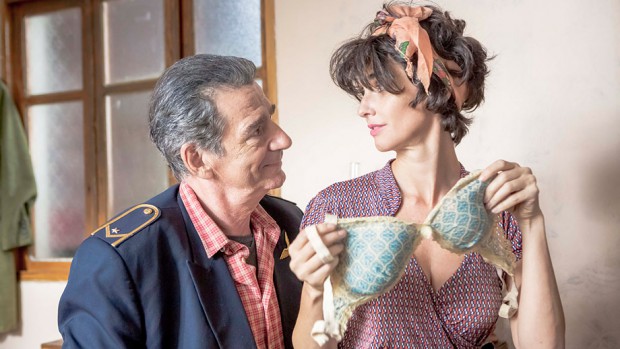
text Ryoko Kuwahara
『ブラ物語』
鉄道運転士のヌルランは定年退職前の最後の乗車となるバクー行きの列車を運転している。目的地近くを走行中に、物干しロープから外れた青いブラが列車に引っかかった。ヌルランは退職後の孤独から逃れるため、自発的にこの可愛らしい下着の持ち主を探し出す決意をする。線路沿いの全部の家を訪ね、女性たちがそれぞれの事情を持ちながら極めてプライベートな領域に彼を招き入れてくれたが、彼女たちの亭主には気付かれずに済んでいる。状況が難しくなればなるほど、全女性にこのブラを試させようと決意を固めたヌルランはクリエイティブな方法を次々と編み出していく。
長編デビュー作品『ツバル』以来、ヘルマー監督は架空の地を舞台にしたユーモラスなヒューマンドラマを描き、恋愛ものから児童映画まで幅広いジャンルを手掛けている。今作でもノスタルジックなタッチと、大人のファンタジーが巧みにブレンドされて観客を幸福にするが、全編セリフを排し、国境を見えなくしたことに深いメッセージが伺える。
言葉の壁が無いことは、スペインの人気女優パス・ベガをはじめ、フランス、ロシアなど各国から女優を集めることも可能にした。
主演のミキ・マノイロヴィッチはE・クストリッツァ監督『アンダーグラウンド』の主演などで知られるセルビアの名優。共演のドニ・ラヴァンも得意の肉体を活かした演技でヘルマー監督の世界に溶け込んでいる。
監督 ファイト・ヘルマー
キャスト ミキ・マノイロヴィッチ/パス・ヴェガ/チュルパン・ハマートヴァ/ドニ・ラヴァン
90分カラーセリフなし字幕なし2018年ドイツ/アゼルバイジャン
http://www.plutofilm.de/films/the-bra/0027





